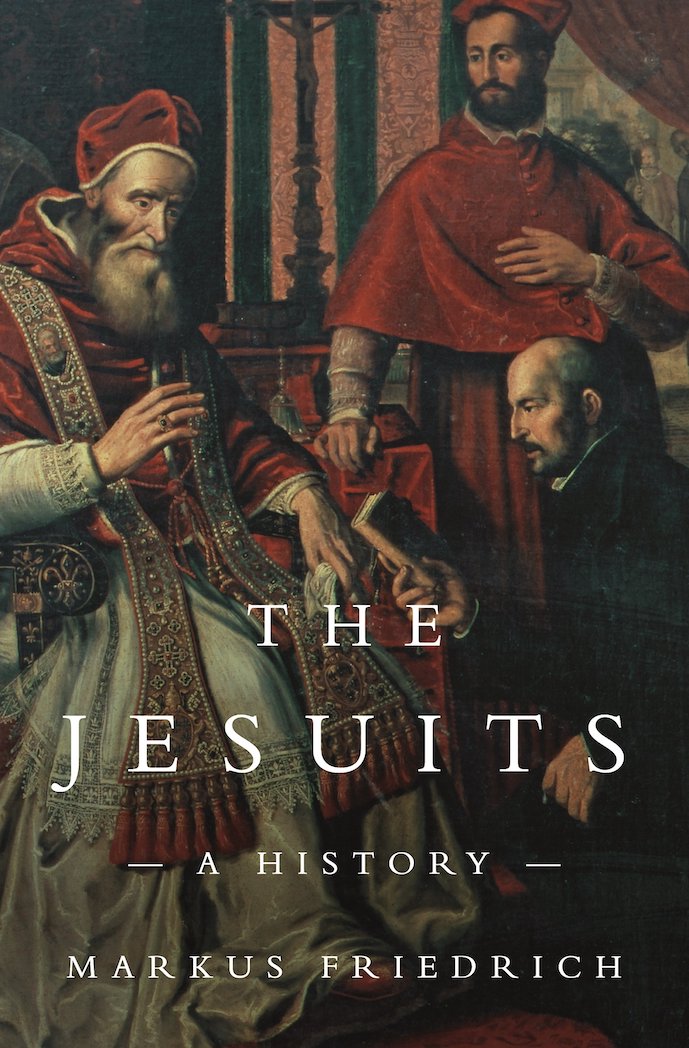“The Jesuits: A History” by Markus Friedrich, translated by John Noel Dillon. Princeton University Press (Princeton, New Jersey, 2022). 872 pp., $39.95.
“Ad Majorem Dei Gloriam” — for the greater glory of God — is the motto of the Society of Jesus. Better known as the Jesuits, the order was established in 1540 by a former Spanish soldier named Ignatius of Loyola. That the order has been seminal in the history of Western civilization in general, and the life of the church in particular, is without dispute.
The publication of a new history of the order, therefore, is cause for celebration. Indeed, Markus Friedrich, a professor of early modern history at the University of Hamburg in Germany, has produced a work that will be valued by anyone interested in the nexus of religion, politics and culture in the 16th, 17th and 18th centuries.
Make no mistake, “The Jesuits” is not a study in triumph. “This book concerns itself with historical processes,” Friedrich writes in the prologue, “not religious truths.” One finds that balance on every page.
The core of the book is the story of the order from its foundation in 1540 to its suppression in 1773. In many ways, the order was a phenomenon. Beginning with a group of 10 followers, the Jesuits became something of an army of over a thousand members in less than 25 years.
That Ignatius was a man of extraordinary ambition and intellect weaves its way through the book. In fact, the Jesuit vision and spirituality was codified by Ignatius in his “Spiritual Exercises” and his influence on the inner faith of the men who followed him is not to be underestimated.
Central to the Jesuit way of life was to be of this world. “He who is no good for the world is as little good for the Society,” Ignatius wrote, “and he who has talent for being useful and living in the world is good for the Society.” That message was spread across the globe over the next two centuries. There was hardly a place on the planet that was not touched in one way or another by the Jesuit way.
It is helpful to think of the Jesuits as a corps of explorers for the Western world. “This Jesuit information system could cover virtually every field of the sciences of the day,” notes Friedrich. “The Jesuits observed anything and everything and transmitted their knowledge to interested parties both inside and outside the order.”
Friedrich tells this story with an exceptional command of a wide variety of sources in several languages. He’s assisted by John Noel Dillon in a graceful and very readable English translation. The result is a book that will be of benefit not only to scholars, but also to general readers.
Although the title suggests a comprehensive history, Friedrich concentrates on the years up to the suppression of the order in 1773. The revival of the order in 1814 and the two centuries that follow are covered in less than a hundred pages. Readers interested in the evolution of the order in the United States or the social interaction of Jesuits in the 20th century will need to look elsewhere.
But don’t dismiss this book as antiquarian. It’s rich in detail and readers will find wonderful observations on the impact of the Jesuits on multiple civilizations. Friedrich has cogently organized his narrative with useful subtitles that allow readers to identify and ponder specific aspects of the order.
What Ignatius of Loyola hath wrought! We must be impressed at how his vision and leadership laid the foundation for the achievements of the Society of Jesus over hundreds of years. He led the Jesuits for only a few years, but his legacy lives on today in work “for the greater glory of God.”
Also of interest: “Jesuit at Large: Essays and Reviews by Jesuit Father Paul V. Mankowski,” edited by George Weigel. Ignatius Press (San Francisco, 2021). 237 pp., $17.95.
“Walking With Ignatius” by Jesuit Father Arturo Sosa, in conversation with Dario Menor. Loyola Press (Chicago, 2021). 264 pp., $24.99.
“Imagine You Walked With Jesus: A Guide to Ignatian Contemplative Prayer” by Jerry Windley-Daoust. Our Sunday Visitor (Huntington, Indiana, 2021). 241 pp., $17.95.
“Jesuit Higher Education in a Secular Age: A Response to Charles Taylor and the Crisis of Fullness” by Jesuit Father Daniel S. Hendrickson. Georgetown University Press (Washington, 2022). 208 pp., $44.95.
Walch is a historian of American Catholicism and the author of “Parish School.”

